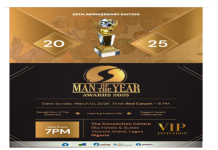In a notable legal development, renowned human rights lawyer and activist, Dele Farotimi, has been granted bail by the Magistrate Court in Ado-Ekiti, Ekiti State.
The court, in a decision made public on December 20, 2024, set his bail at ₦30 million, with the stipulation that Farotimi provide two sureties, each possessing property within the court’s jurisdiction.
This decision comes amidst growing public attention to the charges against him, which have sparked debates on freedom of expression and the legal limits of defamation.
The Legal Battle and the Charges
Farotimi’s legal troubles began on December 3, 2024, when he was arrested in Lagos and later extradited to Ekiti State. He faces serious charges of defamation and cyberbullying, linked to statements made in his controversial book Nigeria and Its Criminal Justice System.
The work has drawn the ire of prominent figures, particularly Senior Advocate of Nigeria (SAN) Afe Babalola, who claims that certain statements in the book amount to defamation. These allegations have put Farotimi at the center of a highly charged legal case that has captivated the nation.
The charges against Farotimi go beyond defamation, as he also faces accusations of cyberbullying. The specific statements that have raised concern relate to claims about the Nigerian justice system and its supposed corruption, with Babalola accusing Farotimi of damaging his reputation through these remarks. Supporters of Farotimi have raised alarms about what they see as an attempt to stifle free speech and limit the right to criticize powerful individuals.
Growing Support and Public Backlash
The arrest and subsequent charges against Farotimi have ignited widespread public discourse. Civil society groups, legal professionals, and activists have rallied behind the embattled lawyer, citing the potential threat to free speech and the right to hold public figures accountable.
Across social media platforms, the hashtag #FreeDeleFarotimiNow has been trending, with numerous campaigns urging the Nigerian government to respect democratic freedoms and judicial independence.
A coalition of activists has also organized protests in various parts of the country, denouncing the legal actions taken against Farotimi as politically motivated. They argue that this case is part of a broader effort to suppress critical voices and silence dissent, especially from those in the legal and activist communities who challenge the status quo.
Bail Conditions and Travel Restrictions
The terms of Farotimi’s bail also include significant restrictions on his movement. Along with the ₦30 million bail, the court has ordered the confiscation of his international passport, effectively preventing him from leaving the country while the case is ongoing. This decision has added fuel to the controversy surrounding the case, with many questioning whether it is an overreach of judicial power. Furthermore, Farotimi is forbidden from making any public statements about Afe Babalola’s alleged influence on the judiciary, a condition that many see as an infringement on his right to free expression.
Despite these constraints, Farotimi’s legal team has expressed confidence that they will successfully challenge the charges in court. They maintain that Farotimi’s statements, both in his book and in public discussions, are protected under Nigeria’s constitution, which guarantees the right to free speech. Legal experts argue that the case could set a significant precedent for the interpretation of defamation laws in Nigeria, particularly in relation to the boundaries of free expression and political critique.
The Road Ahead: Legal and Political Implications
As the legal battle progresses, the trial is slated to begin in February 2025, where the court will delve deeper into the specifics of the defamation and cyberbullying charges. The outcome of this case could have far-reaching implications for Nigeria’s legal landscape, especially for activists, lawyers, and journalists who use public platforms to critique the government or high-profile figures.
This trial underscores the ongoing tension between free speech and defamation laws in Nigeria. While Farotimi’s supporters view the case as an attack on civil liberties, others argue that there must be limits to public criticism when it crosses into defamation. As the legal proceedings unfold, it is clear that the case will be a litmus test for the balance between safeguarding reputations and ensuring the fundamental right to free expression in the country.
A Turning Point for Freedom of Expression in Nigeria?
The Dele Farotimi case is shaping up to be one of the most significant legal battles in Nigeria in recent years. As he prepares for his trial, Farotimi’s supporters remain steadfast in their belief that the charges against him represent an attack on his right to speak truth to power.
The eyes of the nation, and perhaps the world, will be on Ado-Ekiti in February 2025, when the trial finally begins. This case has the potential to reshape the understanding of defamation laws and free speech in Nigeria, marking a critical moment for democracy and justice in the country.
As the situation evolves, it remains to be seen whether Nigeria will embrace a stronger commitment to the principles of free speech or whether it will lean further into restricting the voices of its critics.
































